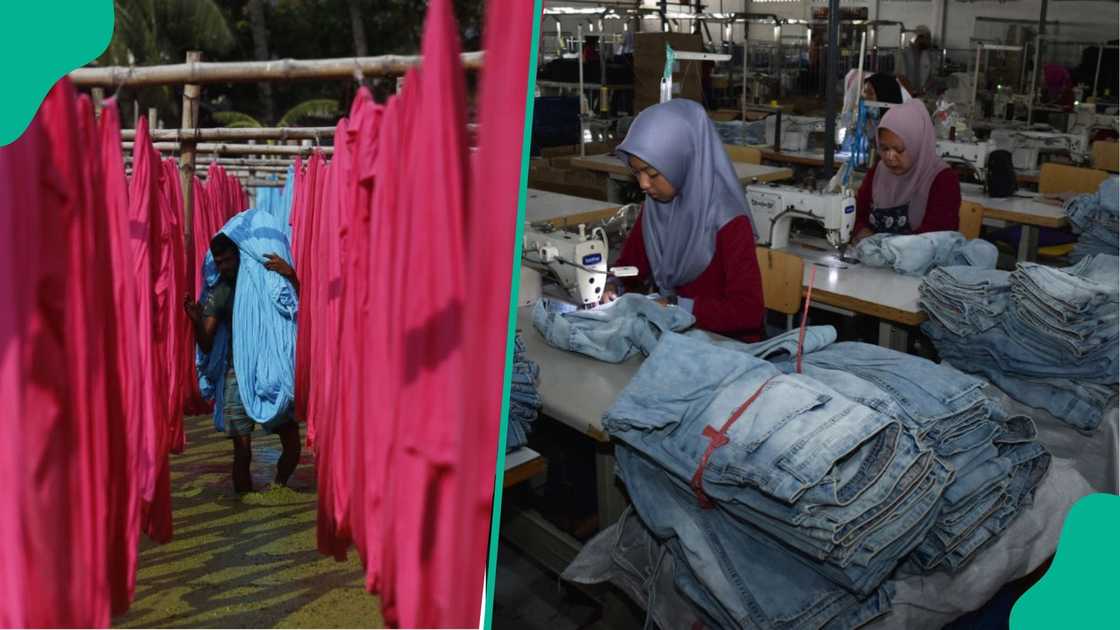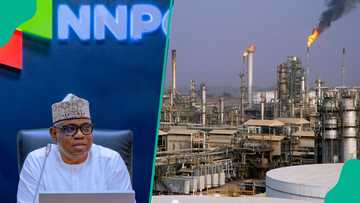Manufacturers’ Fuel Expenses Cross N1 Trillion Amid Rising Electricity, Fuel Costs
- As the power supply situation worsens in Nigeria, individuals and businesses continue to turn to alternative energy sources
- A report shows that manufacturers' expenses on fuel for generators have surged past N1 trillion in 2024
- This increase happened despite the improvement in average hours of power supply to these companies
Legit.ng journalist Ruth Okwumbu-Imafidon has over a decade of experience in business reporting across digital and mainstream media.
Manufacturers in Nigeria continue to battle increased operating expenses, especially to solve their energy needs in the face of poor power supply in Nigeria.
The H2 2024 Economic Review released by the Manufacturers Association of Nigeria (MAN) reveals that manufacturers spent more on generator fuel and other alternative energy in 2024, compared to 2023.
The costs surged from N778.68 billion in 2023 to N1.11 trillion in 2024, marking a 42.3% increase.

Source: Getty Images
This figure comprises N450.8 billion spent in the first half of the year and N790.07 billion in the second half of the year, marking a 75% growth within the two halves.

Read also
CBN warns of Donald Trump's reciprocal tariffs as Nigeria’s foreign investment hits 2-year high
The breakdown shows that the Food, Beverages, and Tobacco sector’s fuel expenses grew from N354.76 billion in 2023 to N474.41 billion in 2024.
For Chemical and Pharmaceutical sectors, alternative energy expenses amounted to N284.68 billion in 2024, while Non-Metallic Mineral Products sector spent N138.49 billion on the same.
The Textile, Apparel, and Footwear industry saw a massive increase in its energy expense from N6.97 billion in 2023 to N26.45 billion in 2024.
Average power supply increased
The report shows that in the same year, the manufacturing sector saw its average power supply increase from 10.6 hours in 2023 to 13.3 hours in 2024.
Looking at the two halfs of the year, it becomes clearer that power supply improved from 11.4 hours in H1, to 15.2 hours in H2 2024.
This, according to MAN, means that the increased expenses on fuelling generators can be traced to the increase in electricity tariffs for Band A consumers, frequent blackout caused by national grid collapses.

Read also
“3 million barrels per day” NNPCL shares plan to attract $60 billion investment, grow production
The rise in fuel costs also indicates that manufacturers would spend more, even if they bought less fuel.
The report also identifies other recurring challenges facing manufacturers and constraining their growth, including foreign exchange volatility and high interest rates, which caused some companies huge losses during the year.
Stakeholders call for intervention
Commenting on the report, MAN director-general, Segun Ajayi-Kadir, stressed the need to stabilise macro-economic conditions for manufcaturers in Nigeria, and improve accessibility and affordability of credit, energy, and foreign exchange, among others.
The President of the Lagos Chamber of Commerce and Industry, Gabriel Idahosa, also seconded this stance, noting that with poor power supply and high tariffs, businesses would continue struggling to grow, and continue to lay off staff.
He also identified other challenges, like unresolved meter-related issues, including unrefunded payments for meters that are meant to be free and uncredited balances during meter transitions.

Source: UGC
Idahosa urged the government to step into the situation and protect manufacturing as the backbone of the economy.
Manufacturers ignore loans amid rising interest rates
In related news, Legit.ng reported that manufacturers now shun loan facilities to explore other fundraising options.
This, according to analysts, is a result of the high interest rates and the multiple challenges that manufacturers already have to deal with.
Stakeholders have appealed to the Central Bank of Nigeria (CBN) to do something about the interest rates, for the sake of companies in the manufacturing and agricultural sectors.
PAY ATTENTION: Сheck out news that is picked exactly for YOU ➡️ find the “Recommended for you” block on the home page and enjoy!
Source: Legit.ng



